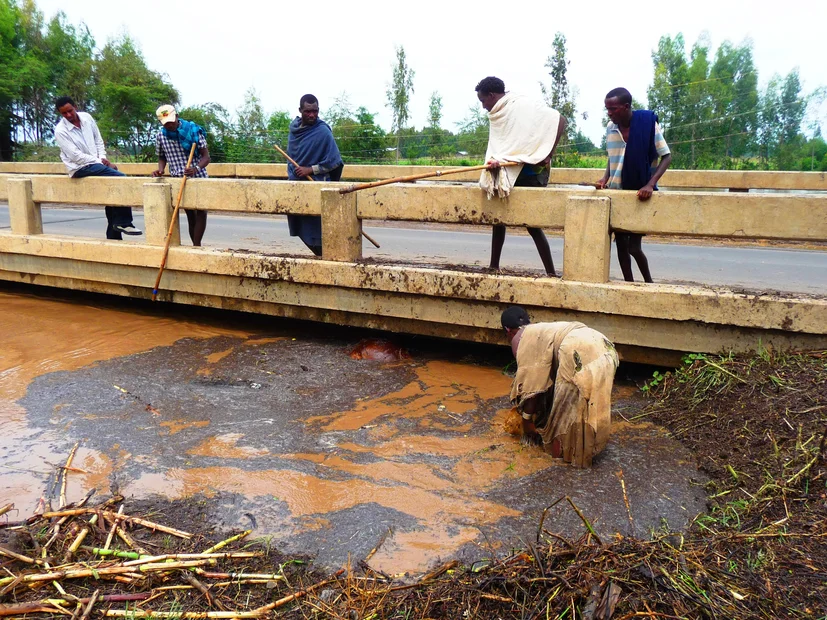Together we must help Ethiopia. Many Ethiopians still live in inhumane conditions. In addition, environmental destruction, rapid population growth, increasing urbanization, globalization, climate change and technical progress have led to living conditions changing at ever shorter intervals. Large parts of the population are being overwhelmed by this development and are constantly facing new hurdles. At the same time, the need as a country to keep up with global developments in order to achieve appropriate standards is growing. Thanks to an impressive investment boom, Ethiopia is considered the new “African Tiger”. But in the shadows of glittering skyscrapers, more and more people are living in settlements made of corrugated sheeting: people are fleeing the countryside into the city - and finding new misery there.
Rural exodus due to high population growth
The competition is getting bigger every day, as more and more poor people and their families come to the cities to escape the overpopulation and lack of prospects in their villages. According to statistics, every Ethiopian woman has an average of five to six children, which leads to an almost unbelievable population growth:
“The population doubled in just 25 years. According to World Bank figures, 48 million people lived in Ethiopia in 1990. Today there are already 96 million people.”
The situation is also precarious in rural areas: overuse and erosion are making arable land more barren and scarce. The farms can no longer support the numerous family members. This leads to rural exodus on a large scale. Every year the proportion of city residents in the total population increases by five percent. According to United Nations estimates, the urban population will triple in the next 25 years.
Impoverishment in the city
The cities cannot cope with this onslaught. There are neither jobs nor infrastructure to meet people's basic needs. For example, three quarters of the urban population in Ethiopia do not have toilets. Often, numerous households share a latrine without flushing water. Often there are not even latrines. The residents have to defecate in an inhumane manner in plastic bags, in old cans or on wasteland in the city. Young women who come to the city from the countryside without any means are at risk of falling into prostitution - especially if they are already mothers and see no other way to get money to care for their children. A lot of unemployed immigrants try to survive in the cities from day to day.
“You see those in the light, you don’t see those in the dark,” it says in the Threepenny Opera. In Ethiopia, the people who are easily overlooked are the majority:
“77 percent still have to survive on less than two dollars a day.”
Menschen für Menschen Switzerland therefore wants to stand up for those who do not or hardly benefit from economic growth - the people who live in the shadow of the new, glittering facades.
Menschen für Menschen
On the other hand, Menschen für Menschen in the cities ensures that people are better off, with sanitation and health projects, but above all with economic development initiatives.
















